Cart

FREE Delivery in USA - Today


Listen Now 0:00 0m 00s left – 0:00 ...
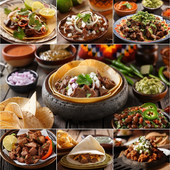
Listen Now 0:00 0m 00s left – 0:00 ...
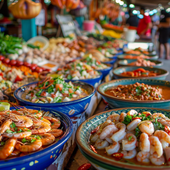
Listen Now 0:00 0m 00s left – 0:00 ...

Listen Now 0:00 0m 00s left – 0:00 ...
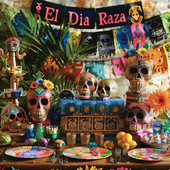
Listen Now 0:00 0m 00s left – 0:00 ...
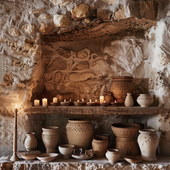
Listen Now 0:00 0m 00s left – 0:00 ...
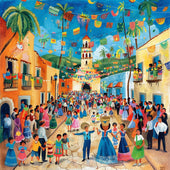
Listen Now 0:00 0m 00s left – 0:00 ...
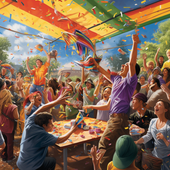
Listen Now 0:00 0m 00s left – 0:00 ...

Listen Now 0:00 0m 00s left – 0:00 ...

Listen Now 0:00 0m 00s left – 0:00 ...

Listen Now 0:00 0m 00s left – 0:00 ...
Listen Now 0:00 0m 00s left – 0:00 ...
Listen Now 0:00 0m 00s left – 0:00 ...

Listen Now 0:00 0m 00s left – 0:00 ...
Listen Now 0:00 0m 00s left – 0:00 ...

Listen Now 0:00 0m 00s left – 0:00 ...
Listen Now 0:00 0m 00s left – 0:00 ...
Listen Now 0:00 0m 00s left – 0:00 ...
Listen Now 0:00 0m 00s left – 0:00 ...
Listen Now 0:00 0m 00s left – 0:00 ...
Listen Now 0:00 0m 00s left – 0:00 ...
Listen Now 0:00 0m 00s left – 0:00 ...
Listen Now 0:00 0m 00s left – 0:00 ...
Listen Now 0:00 0m 00s left – 0:00 ...
Listen Now 0:00 0m 00s left – 0:00 ...
Listen Now 0:00 0m 00s left – 0:00 ...
Listen Now 0:00 0m 00s left – 0:00 ...
Listen Now 0:00 0m 00s left – 0:00 ...
Listen Now 0:00 0m 00s left – 0:00 ...
Listen Now 0:00 0m 00s left – 0:00 ...
Listen Now 0:00 0m 00s left – 0:00 ...
Listen Now 0:00 0m 00s left – 0:00 ...
Listen Now 0:00 0m 00s left – 0:00 ...
Listen Now 0:00 0m 00s left – 0:00 ...
Listen Now 0:00 0m 00s left – 0:00 ...
Listen Now 0:00 0m 00s left – 0:00 ...
Listen Now 0:00 0m 00s left – 0:00 ...
Listen Now 0:00 0m 00s left – 0:00 ...
Listen Now 0:00 0m 00s left – 0:00 ...
Listen Now 0:00 0m 00s left – 0:00 ...
Listen Now 0:00 0m 00s left – 0:00 ...
Listen Now 0:00 0m 00s left – 0:00 ...
Listen Now 0:00 0m 00s left – 0:00 ...
Listen Now 0:00 0m 00s left – 0:00 ...
Listen Now 0:00 0m 00s left – 0:00 ...
Listen Now 0:00 0m 00s left – 0:00 ...
Listen Now 0:00 0m 00s left – 0:00 ...
Listen Now 0:00 0m 00s left – 0:00 ...
Listen Now 0:00 0m 00s left – 0:00 ...

🔮 She Doesn’t Just Believe—She Knows 🔮 You’ve always felt it—that quiet knowing, that electric intuition, that cosmic pull that tells you you’re no...
View full details
✨ Meet Your Cosmic Alter-Ego ✨ Some tees are just cute. This one feels like fate. The moment you slip on LA DEISTA—the chibi girl with galaxy hair—...
View full details
💫 Embrace Your Inner Goddess 💫 Some shirts are just clothes—but this one? It’s magic. It's more than a tee; it's a cosmic connection to the univer...
View full details
🌙 Awaken Your Inner Goddess 🌙 Step into a world of magic and mystery with the LA DEÍSTA Lotería Card T-Shirt. This isn't just a shirt—it's an expre...
View full details
💫 Embrace Your Celestial Power 💫 In a world full of noise, there’s a quiet strength in standing out with intention. This La Deísta t-shirt isn’t ju...
View full details
🌞💫 Embrace Your Inner Goddess with LA DEÍSTA 💫🌙 Some shirts simply cover you—but this one? It transforms you. Designed to evoke the divine balance ...
View full details
💖 A Tribute to Who You Are 💖 It’s more than a shirt. It’s a piece of your story, your culture, your essence. With every design, we invite you to re...
View full details
💖 Your Story, Your Style 💖 What if you could wear a piece of your life, your culture, and your personality—one that’s as unique as you are? This is...
View full details
💖 Wear Your Story with Pride 💖 This isn’t just another shirt. It’s your story, your memory, your culture, beautifully captured in a design you’ve c...
View full details
💖 Unforgettable Moments, Worn Proudly 💖 Every thread of this shirt tells a story—your story. It’s more than just fabric; it’s a piece of your life,...
View full details
🌙 Embrace Your Inner Goddess 🌙 Step into a world of mysticism, magic, and celestial beauty with the LA DEÍSTA Lotería Card T-Shirt. This isn’t just...
View full details
💖 Your Story, Your Shirt 💖 Sometimes, a shirt is just a shirt. But this one? It's more. It’s a piece of you. A snapshot of your life, your journey,...
View full details
🌙✨ Awaken the Magic Within 🌞✨ This isn't just a shirt—it's a portal to the mystical. Featuring the enchanting La Deísta design, this shirt invites...
View full details
💖 A Piece of You, Worn with Pride 💖 There’s something magical about a shirt that’s more than just fabric. This isn't just clothing; it's a memory,...
View full details
💖 Feel the Spirit of Fiesta with LA AGUILA 💖 Some shirts are just fabric—but this one? It’s a symbol of your heritage, your roots, your spirit. Des...
View full details
🦅 Embrace the Spirit of Freedom with LA ÁGUILA 🦅 Some shirts capture a moment. But this one? It’s a tribute to the bold, fearless spirit of the eag...
View full details
💖 Spread Your Wings with La Águila 💖 Some shirts are just designs—but this one? It’s your spirit, your culture, your pride—perfectly captured in a ...
View full details
💖 Feel the Spirit of Tradition, Live the Fun 💖 Every game of Lotería brings memories—laughter, competition, and those moments of pure joy. But what...
View full details
💖 Embrace Your Heritage with a Bold Twist 💖 There’s a feeling that comes when you wear something that’s more than just fabric. It’s a story, a cult...
View full details
💖 A Memory You Can Hold Forever 💖 Some shirts are just clothes—but this one? It’s you. It’s your story, your culture, your memories—all brought to ...
View full details
Leave a comment